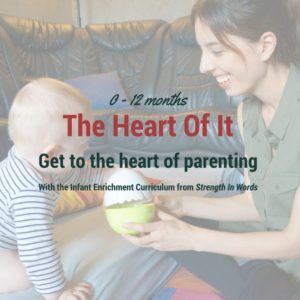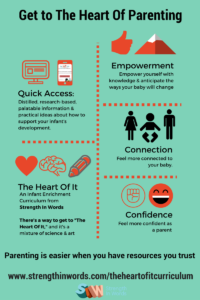 Becoming a mom sometimes feels like a waking version of that dream where you’re forced to take a final exam for a class you never attended: you are pretty much guaranteed to screw something up big time. In fact, as most of us come to realize, there is no cookie-cutter, “right” way to parent; you and your child are going to navigate this journey together as best you can, day by day.
Becoming a mom sometimes feels like a waking version of that dream where you’re forced to take a final exam for a class you never attended: you are pretty much guaranteed to screw something up big time. In fact, as most of us come to realize, there is no cookie-cutter, “right” way to parent; you and your child are going to navigate this journey together as best you can, day by day.
Still, it would be nice to have some advice along the way that doesn’t sound preachy, judgmental or so complicated that you feel defeated before you even start. That’s exactly what Bay Area mom and early communication expert Ayelet Marinovich set out to provide when she developed The Heart Of It, an infant curriculum for families that gently guides you through the first year of your baby’s life.
Marinovich, a trained pediatric speech-language pathologist, recently returned to the Bay Area after living in Germany, where she gave birth to her first child (a second is due in January). While there, she created Strength In Words, a podcast and DIY blog featuring music, play ideas and information about infant and toddler development.
The Heart Of It, which officially launches today, November 2, is an expansion and extension of that project. Marinovich gives us a sneak-peek behind the curtain of what she calls a “labor of love.”
San Francisco Moms Blog: What inspired you to develop The Heart Of It?
Ayelet Marinovich: The process of becoming a parent is such a personal one, which makes us feel very vulnerable. Many of us turn to desperate searches on the web and quickly find ourselves at the bottom of a rabbit hole of “expert” advice and “one- size-fits- all” solutions. There’s SO much information out there that it feels impossible to sift through and find distilled, research-based information that we can immediately apply to our lives.
My goal with The Heart Of It was to create a resource that essentially felt like a trustworthy friend whispering in your ear, reminding you of all the things you already know and offering golden nuggets of developmental wisdom with ideas you can incorporate into your everyday life (without a lot of prep). I also wanted to create a resource that acknowledged that babies develop at their own rate – taking the focus off “meeting milestones” and putting it instead on the understanding of how cognitive, communicative, motor, and social/emotional development happen.
 SFMB: When you sought feedback from parents to help develop the program, what stood out?
SFMB: When you sought feedback from parents to help develop the program, what stood out?
AM: I spoke at length with over 30 moms, dads and other caregivers from all over the world, with “typically developing” babies and with babies with special needs. The points that kept coming up included:
* I feel like I’m winging it as a parent, and probably “doing it wrong.”
* I never know where to look – and even if I spend the time reading a book, I often feel like it doesn’t answer what I need to know right now.
* If I had access to something that reminded me of little, easy things I could do with my baby, I wouldn’t feel so guilty spending time on the daily grind. When we become parents, we want to feel empowered, more confident and more connected to these new beings. We want to feel like we’re doing something right, or at least that we’re capable of it. It’s not very often that someone gives the mother of an infant a pat on the back!
SFMB: How did your own experience with motherhood help shape this project?
AM: When my son was born, I was, like most new parents, overwhelmed and vulnerable. As a pediatric speech-language pathologist who specializes in early communication, I’m used to working with families with young children, and I have a strong background in early child development. But all that knowledge and confidence went straight out the window in the early days, weeks and months of my own transition to parenthood!
I was really lucky to have a strong network of other new moms in my immediate neighborhood, and I started inviting them over on a weekly basis for tea, a snack and what I started to call “baby” sessions – part support group, part “spend time with your baby,” and part developmental group/music class. That was when the idea of Strength In Words was born, and, for me, The Heart Of It was a natural extension of that.
SFMB: You became a mom while living outside the U.S. What did you observe, and how did that influence the choices you made in developing this curriculum?
AM: I think one of the most valuable parts of my experience was the fact that I had exposure not only to different systems, but also to parents and caregivers from all over the world. I quickly realized that parenthood is the great equalizer. All of us, with our cultural idiosyncrasies, our preconceived notions about what a “good mother” is, our linguistic variety, etc. – we are all just doing the best for our babies, and we all want to feel supported and empowered with tools to help us do just that. Encouraging learning and interaction through music, movement and open-ended play are tools that I use throughout Strength in Words and The Heart Of It, because they are universal and can be applied to any culture and language.
The early bird gets the deal! From November 2-9, customers who purchase The Heart Of It will receive an advance copy of Marinovich’s not-yet- released Strength In Words musical album. (Did we mention she’s a singer as well??)
*Pictures courtesy of Ayelet Marinovich















